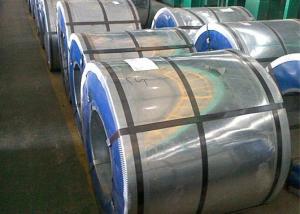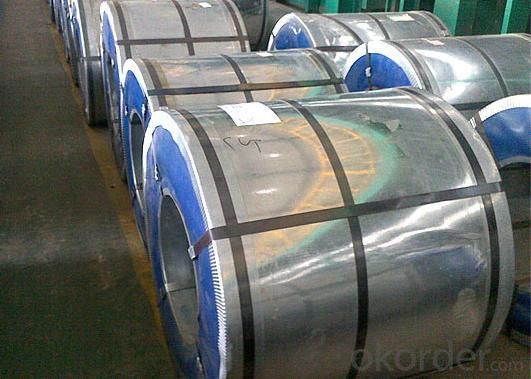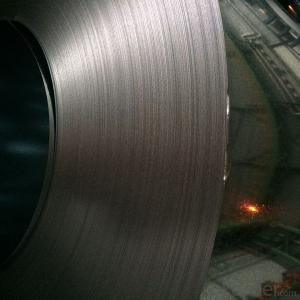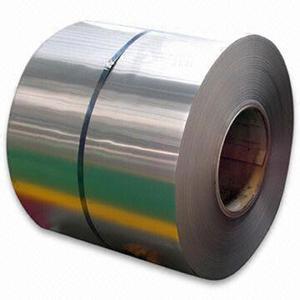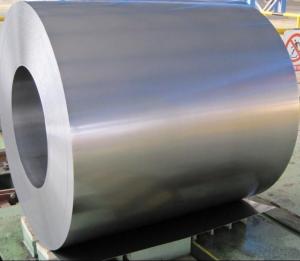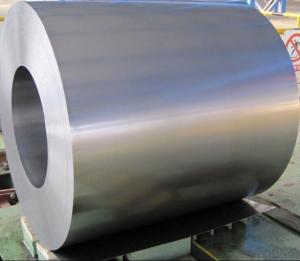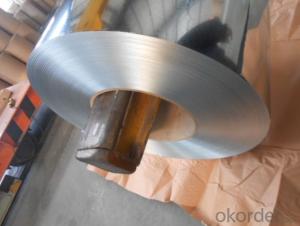Hot Dip Galvanized Steel Coil-Zero Spangle-FORWARD-30-200g/m2
- Loading Port:
- Tianjin Port
- Payment Terms:
- TT or LC
- Min Order Qty:
- 50mt m.t.
- Supply Capability:
- 5000 tons per month m.t./month
OKorder Service Pledge
OKorder Financial Service
You Might Also Like
Hot Dip Galvanized Steel Coil-Zero Spangle-FORWARD-30-200g/m2
Hot-dip galvanized steel coils are available with a pure zinc coating through the hot-dip galvanizing process. It offers the economy, strength and formability of steel combined with the corrosion resistance of zinc. The hot-dip process is the process by which steel gets coated in layers of zinc to protect against rust. It is especially useful for countless outdoor and industrial applications.
Product Description Of Hot Dip Galvanized Steel Coil- Zero Spangle - FORWARD- 30- 200g/m2
|
Thickness |
0.13mm-0.7mm |
|
Width |
600mm-1250mm |
|
Zinc Coating |
30-200g/m2 |
|
Internal Diameter |
508mm/610mm |
|
Coil Weight |
3-12MT |
|
Quality |
commercial and structural quality |
|
Surface Treatment |
regular & minimum spangle, zero spangle, oiled & dry, chromated , non-skin pass , skin pass |
|
Standard |
JIS G 3302, ASTM A 653M, EN 10327 |
|
Steel Grade |
SGCC, CS, FS, SS, LFQ, DX51D+Z , S280GD |
Technical Data Of Hot Dip Galvanized Steel Coil- Zero Spangle - FORWARD- 30- 200g/m2
|
Chemical Composition |
C |
Si |
Mn |
P |
S |
|
0.04-0.06% |
0.01-0.03% |
0.18-0.22% |
0.014-0.016% |
0.006%-0.009% |
|
Yield Strength |
(Mpa) 280-320 |
|
Tensile Strength |
(Mpa) 340-390 |
|
Elongation |
20%-30% |
|
Out-of-square |
not exceed 1% Flatness |
|
Bow |
15mmmax |
|
Edge Wave |
9mmmax |
|
Centre Buckle |
8mmmax |
|
Bending At 180 Degree |
No crack, purling and fraction |
Application Of Hot Dip Galvanized Steel Coil- Zero Spangle - FORWARD- 30- 200g/m2:
It can be widely used in transportation, light industry, civil usage and farming. It is also the perfect building material in construction for making roofing tile, steel profiles for wall partition, T-bar, studs, fireproof door, air conditioning duct and home appliance.
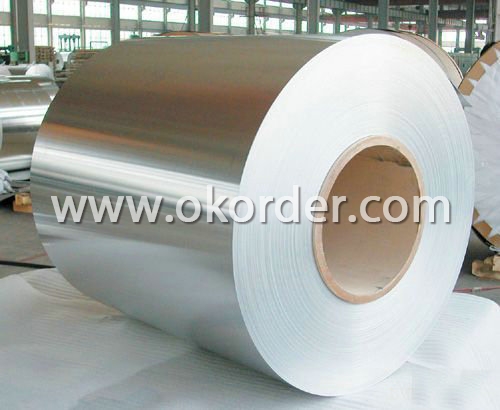
Packaging & Delivery Of Hot Dip Galvanized Steel Coil- Zero Spangle - FORWARD- 30- 200g/m2:
The packing of coils consists of anti-damp paper, PVC film, hardboard paper, steel box, strapped with steel strips, fitted with locks and edge protectors and guarantees the optimal condition of the delivered goods. Each coil can be additionally fitted with wooden/steel skids(eye to the side) or wooden pallets(eye to the sky).
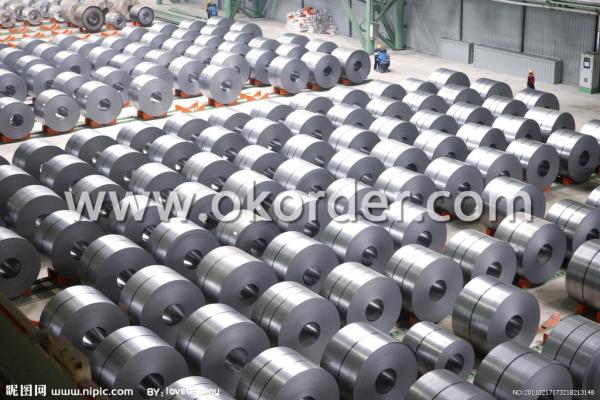
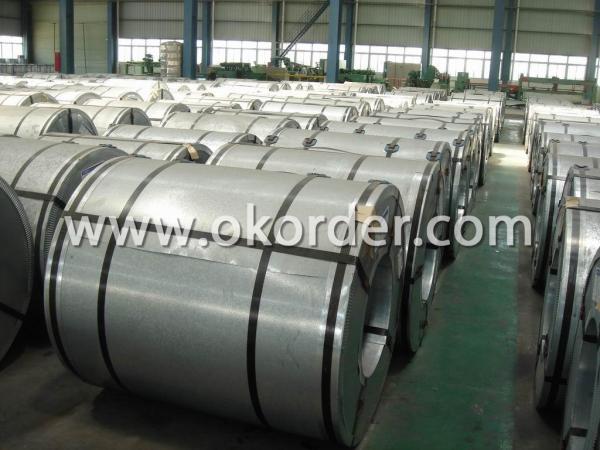
Production Flow Of Hot Dip Galvanized Steel Coil- Zero Spangle - FORWARD- 30- 200g/m2:
Production flow of hot dip galvanized steel coil - zero spangle - forward - 30 - 200g/m2 include dual uncoiler, stitcher(welder), bridle, steering unit, entry accumulator, heating & soaking furnace, jet cooling section, ceramic zinc port, cooling tower, skin pass mill, tension leveller, chromating with dryer, exit accumulator and dual recoiler.
- Q: How are steel coils tested for mechanical properties?
- Steel coils are tested for mechanical properties through various methods, including tension testing, hardness testing, and impact testing. Tension testing involves applying force to the coil until it breaks, allowing for the measurement of its strength and elongation. Hardness testing determines the coil's resistance to indentation, providing insight into its overall strength and durability. Impact testing determines the coil's ability to withstand sudden applied loads by subjecting it to a high-velocity impact and measuring its ability to absorb the energy. These tests help ensure that steel coils meet the required mechanical properties for their intended applications.
- Q: Consider a steel rod of diameter 4.5 mm and length 3.3 m. If a compressive force of 4900 N is applied to each end, what is the change in the length of the rod?
- You need to calculate the stress on the rod and compare this with the mechanical properties of the steel. It would help if you were given more info. You will need to know something about the steel such as the yeild stress and E, the modulus of elasticity. The value of E is about the same for a wide range of steels. So long as the applied stress is below the yield stress, the strain is all elastic and is calculated from E. The real answer is that you can not answer this question since you do not know what the temperature is. Given the applied load, the change in length will be much different at room temperature than at 1500C.
- Q: I'm building a single-speed commuter bike and I was wondering what the advantages and disadvantages of steel and alloy wheels are. Any experts out there who can give me specifics for each kind?
- Alloy Bike Wheels
- Q: How do steel coils contribute to the energy storage industry?
- The energy storage industry benefits greatly from the use of steel coils in multiple ways. Initially, steel coils are instrumental in the fabrication of energy storage systems like batteries. Through their steel casing, batteries are provided with both structural support and protection for the battery cells, ensuring their safety and longevity. If not for steel coils, batteries would be more susceptible to damage and unable to function efficiently. Furthermore, the construction of flywheels, an alternative form of energy storage technology, heavily relies on steel coils. Flywheels store energy by spinning a rotor at high speeds and releasing the stored energy when necessary. Steel coils are employed to create the rotor, which necessitates strength, durability, and the ability to withstand substantial rotational forces. Additionally, the magnetic properties of steel contribute to the enhancement of energy transfer efficiency within the flywheel system. Moreover, compressed air energy storage (CAES) systems also utilize steel coils in their production. CAES systems store energy by compressing air and releasing it to generate electricity upon demand. Steel coils are crucial in constructing the air storage chamber, guaranteeing its integrity and preventing any leakage or damage. The robust nature of steel coils makes them ideal for enduring the high pressures associated with the compression process. To summarize, the energy storage industry greatly benefits from the utilization of steel coils. They provide essential structural support, durability, and protection to various energy storage technologies, whether it be batteries, flywheels, or CAES systems. By contributing to the efficient and secure storage of energy, steel coils facilitate the advancement and adoption of sustainable energy solutions.
- Q: What are the dimensions of steel coils used in the automotive industry?
- Steel coils used in the automotive industry come in various dimensions, which are determined by the specific application and requirements. Normally, the thickness of these coils falls between 0.5mm and 3mm, while the width ranges from 500mm to 2000mm. The length of the coils is subject to variation, depending on the production process and customer specifications. Furthermore, the weight of the coils can range from a few hundred kilograms to several tons. It is worth mentioning that these dimensions serve as general guidelines and may differ based on the particular needs of the automotive manufacturer.
- Q: How are steel coils used in the production of steel hooks?
- Steel coils are used in the production of steel hooks as they provide the raw material needed for shaping, forming, and manufacturing the hooks. The coils are unwound, processed, and then transformed into the desired shape and size to create the steel hooks.
- Q: How are steel coils used in the manufacturing of electrical wiring?
- Steel coils are used in the manufacturing of electrical wiring to provide strength and support to the wiring. The steel coils are typically used as a core or reinforcement within the wiring to enhance its durability and prevent it from bending or breaking easily.
- Q: My boyfriend says he has balls of steel.
- yes, he had to sew special underwear for himself so he can support his steel balls; like a bra for down there.
- Q: How are steel coils used in the manufacturing of metal structures?
- Steel coils are used in the manufacturing of metal structures as they provide a convenient and efficient way to shape and form steel into various components. These coils are often processed through rolling mills to produce sheets or plates, which can then be cut, bent, or welded to create structural elements such as beams, columns, and trusses. The use of steel coils ensures uniformity, strength, and flexibility in the manufacturing process, allowing for the production of durable and reliable metal structures.
- Q: Are steel coils used in the oil and gas industry?
- Yes, steel coils are commonly used in the oil and gas industry for various applications. They are utilized in the manufacturing of pipelines, storage tanks, and other equipment due to their strength, durability, and resistance to corrosion. Steel coils are also employed in the construction of offshore platforms and drilling rigs, where they provide structural support and ensure the safety and reliability of the infrastructure.
1. Manufacturer Overview
| Location | Shandong, China |
| Year Established | 2010 |
| Annual Output Value | |
| Main Markets | 33.03% Southeast Asia 33.03% South America 20.18% Africa 13.76% Mid East |
| Company Certifications | ISO9001:2008 |
2. Manufacturer Certificates
| a) Certification Name | |
| Range | |
| Reference | |
| Validity Period |
3. Manufacturer Capability
| a) Trade Capacity | |
| Nearest Port | Tianjin Port, China |
| Export Percentage | 61% - 70% |
| No.of Employees in Trade Department | Above 100 People |
| Language Spoken: | Chinese, English |
| b) Factory Information | |
| Factory Size: | 10,000-30,000 square meters |
| No. of Production Lines | 10 |
| Contract Manufacturing | OEM Service Offered |
| Product Price Range | Low |
Send your message to us
Hot Dip Galvanized Steel Coil-Zero Spangle-FORWARD-30-200g/m2
- Loading Port:
- Tianjin Port
- Payment Terms:
- TT or LC
- Min Order Qty:
- 50mt m.t.
- Supply Capability:
- 5000 tons per month m.t./month
OKorder Service Pledge
OKorder Financial Service
Similar products
Hot products
Hot Searches
Related keywords
